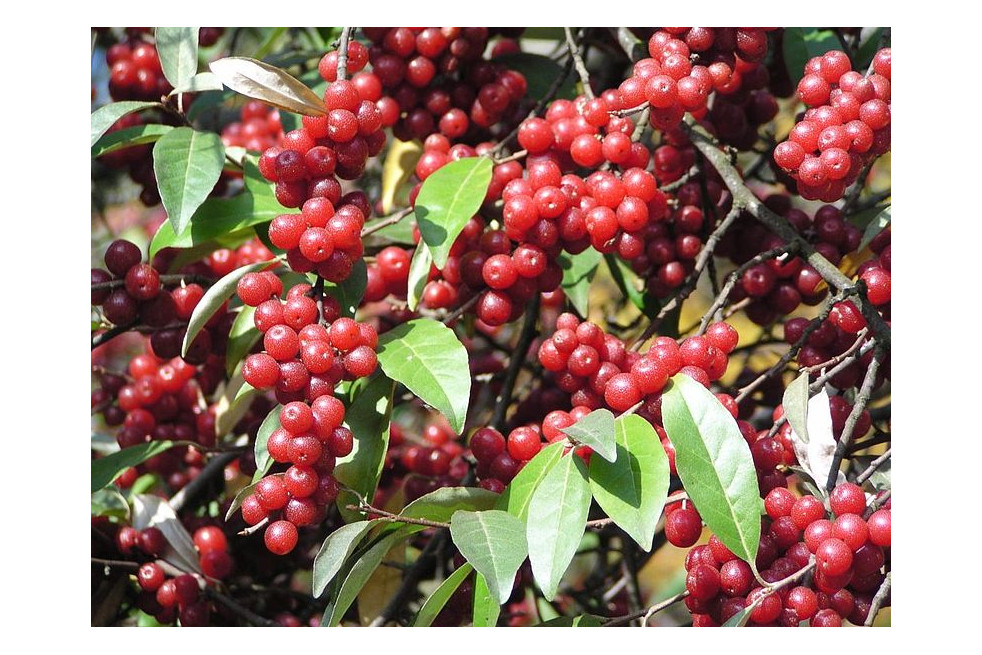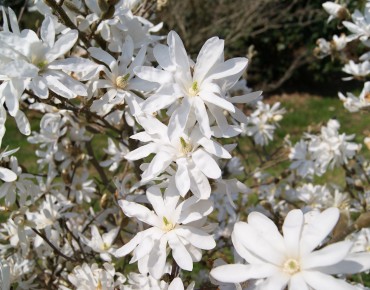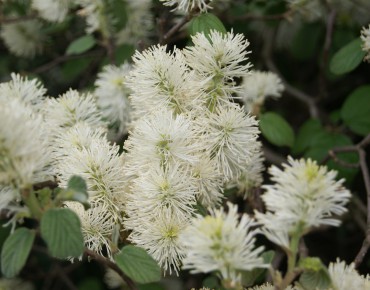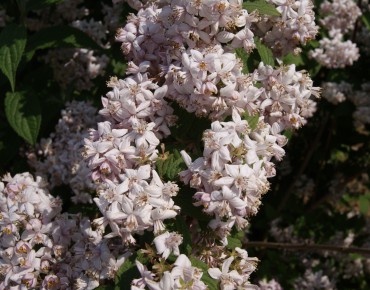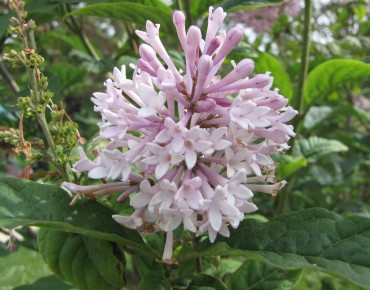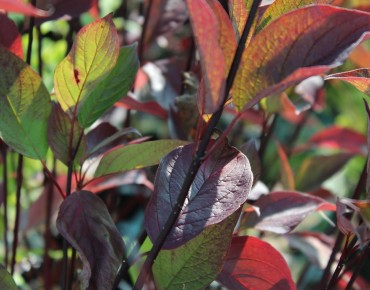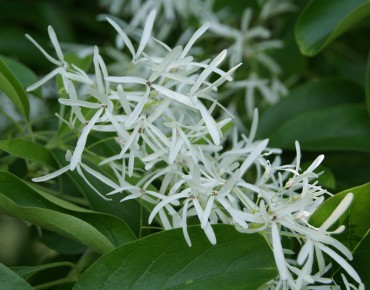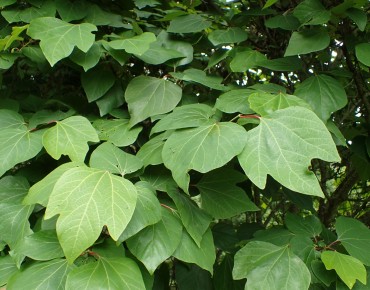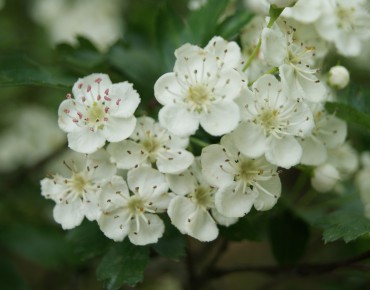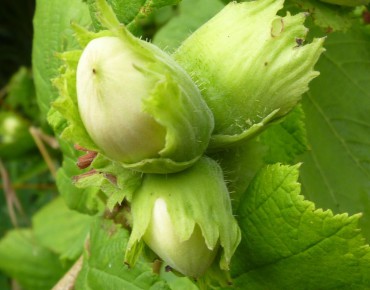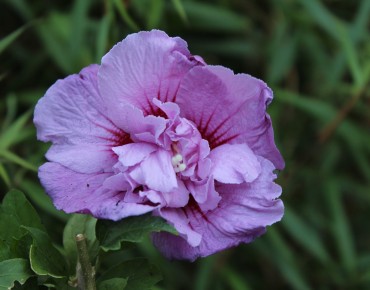- Out-of-Stock
Japanese silverberry Pointilla® Amoroso®
Elaeagnus umbellata Pointilla® Amoroso®
Description
Elaeagnus umbellata Pointilla® Amoroso® or Japanese silverberry Pointilla® Amoroso® is a remarkable fruit shrub, appreciated for its robustness and its ability to produce delicious fruits. This has deciduous foliage (half-evergreen in a warm area) with thick, shiny green threads on the breast and blue on the lapel. In April/May, the bouquet is made up of small, creamy, discreet, very perfumed white flowers that attract pollinators.
The fruits of the Elaeagnus umbellata Pointilla® Amoroso® are very small, cherry red, covered in an argent plum, giving the impression that they are soaked in sugar. These are two of the largest, most successful types of variety, and are not only attractive, but also nutritious, rich in vitamins and antioxidants. They can be consumed fresh, directly from the chestnut, or used in a variety of recipe dishes, from tart jam, to a sweet and slightly acidic sauce. This variety produces an abundance of fine fruits to be harvested in September and October,
The Japanese silverberry Pointilla® Amoroso®, with a rustic finish up to -30° C, is suitable for most regions. Its height of maturity, between 3 and 3.50 m, is an excellent choice for average size gardens. It can be served with a fruit or plant like isolated specimen. Its resistance to cold and its ability to survive in conditions less than ideal make it a robust candidate for the garden.
Culture :
For planting Elaeagnus umbellata Pointilla® Amoroso®, it is essential to follow some locked stages to ensure its good development. Above all, choose a location that offers the sunny side or the mid-air shadow. Before the planter, it was advised to reduce the threshold of the bush just as there were more air bubbles, which indicated that the bones were well hydrated.
Make a mistake that is at least three times larger than the pot of paint, and is well known. This allows the wheels to sit comfortably in the sun and sit quickly. Gently remove the arbusting part of its content, while being careful not to damage the bones. If they are rolled or compacted, apply the sugar with your fingers to encourage a cross outside.
Place the bust in the wedlock of the plantation, above the neck of the plant (the part where the wheels begin to sit above the base of the tree) either at the level of the ground or slightly above the ground to eliminate the pouring. Apply with a mixture of garden soil and compost or quality soil, which provides essential nutrients for the initial growth of the plant.
After planting, lightly brush the sun around the habit and rake to eliminate air pockets and ensure good contact between the wheels and the sun. Applying an organic paste around the base of the tree can help to preserve the moisture of the sun, reduce the growth of dry herbs and provide additional nutrients to measure how it decomposes. A slightly balanced application at the start of spring can encourage flora and abundant fructification, but it is important not to over-fertilize, as this may favour the growth of the foliage after the detriment of the fruit.
In terms of general concerns, the Japanese silverberry Pointilla® Amoroso® is relatively easy to use. Although it has always been resistant to the risk of failure, regular installation during the first few years after planting has helped to develop a strong racing system. During extended periods of safety, additional arranging may be necessary, especially if the arranging is planted in a soft sun that retains little moisture.
Finally, to promote good fruit production, it is recommended to plant half two plants of Elaeagnus umbellata Pointilla® Amoroso® or the combination with other varieties like the common Elaeagnus umbellata variety, Pointilla® Fortunella® or Pointilla® Sweet 'N'Sour® to ensure a higher pollination rate. With these appropriate cares, your Elaeagnus umbellata Pointilla® Amoroso® succulent plant provides an abundance of flowers and fruits to embellish your garden and rake your papillae.
Pruning:
Pruning Elaeagnus umbellata Pointilla® Amoroso® is crucial to ensure healthy growth and fruitful production. It is recommended to prune this shrub once a year, ideally in early spring, before new growth begins. This time allows you to better visualize the structure of the shrub without the foliage and to avoid cutting off new shoots that will bear fruit. When pruning, it is important to remove dead, damaged or diseased branches to prevent the spread of diseases and pests. It is also necessary to thin out the centre of the shrub to allow light and air to circulate freely, which promotes better health and more vigorous growth.
To maintain an aesthetic and compact shape, you can also shorten branches that are too long or untidy. However, it is essential not to prune more than a third of the shrub at a time to avoid stressing it. Too severe a pruning can reduce flowering and fruiting. If you want to rejuvenate an older shrub, do so gradually over several years, cutting back a little more each year until you achieve the desired shape.
Features
- Common name : Japanese silverberry Pointilla® Amoroso®
- Family : Elaeagnaceae
- Category : fruit tree
- Spread : 2.50 m
- Foliage : deciduous
- Color of flowers : creamy-white
- Fruit : large cherry red berries, sweet, tangy
- Harvest : September - October
- Use : clumps - free or fruit hedges - isolated
- Soil : all
- Habit : Spreading
- Enemies : aphid
- Possible diseases : resistant to diseases
Expédition & livraison
How does the delivery work?
 As soon as you place your order your plants are selected
As soon as you place your order your plants are selected Each order is processed individually.
Each order is processed individually. Plants are packed, staked and labeled.
Plants are packed, staked and labeled. Packaging is carefully implemented to avoid any problems.
Packaging is carefully implemented to avoid any problems. Packages are ready to be shipped.
Packages are ready to be shipped.
Our delivery methods
Shipping of our plants throughout Europe (except overseas and islands).
Customer reviews

